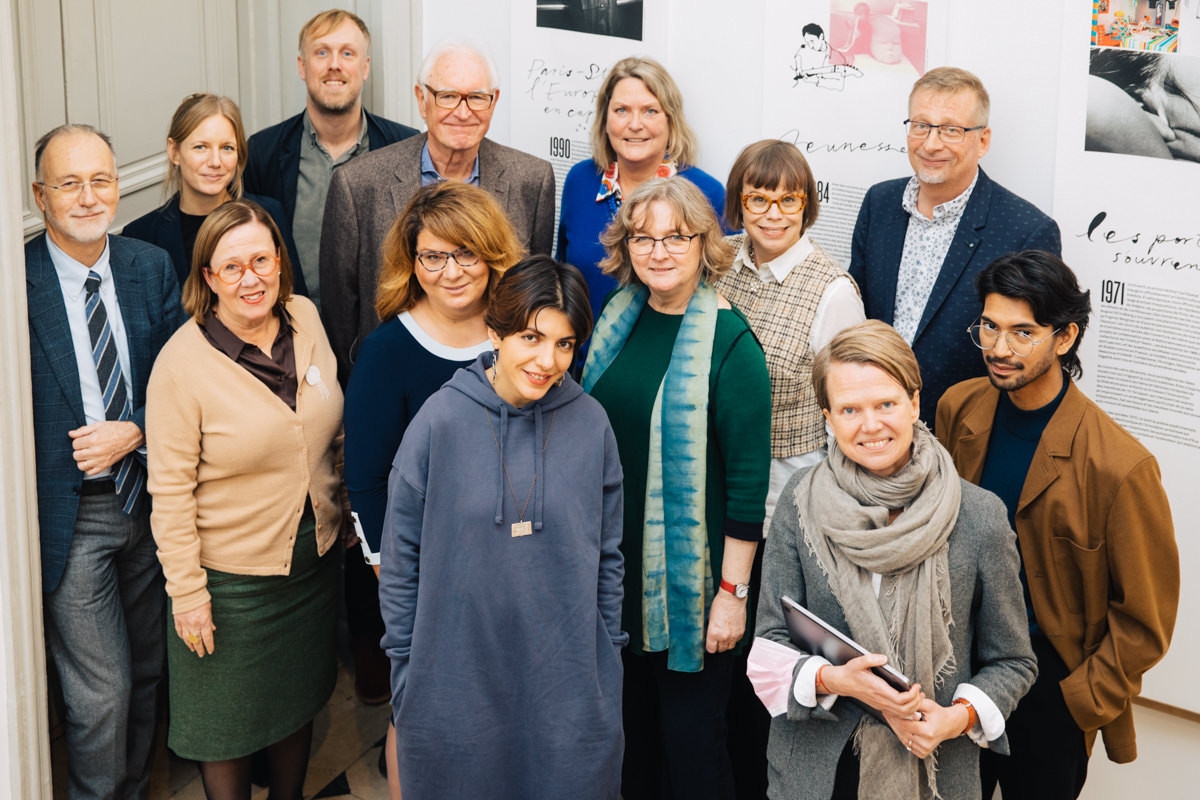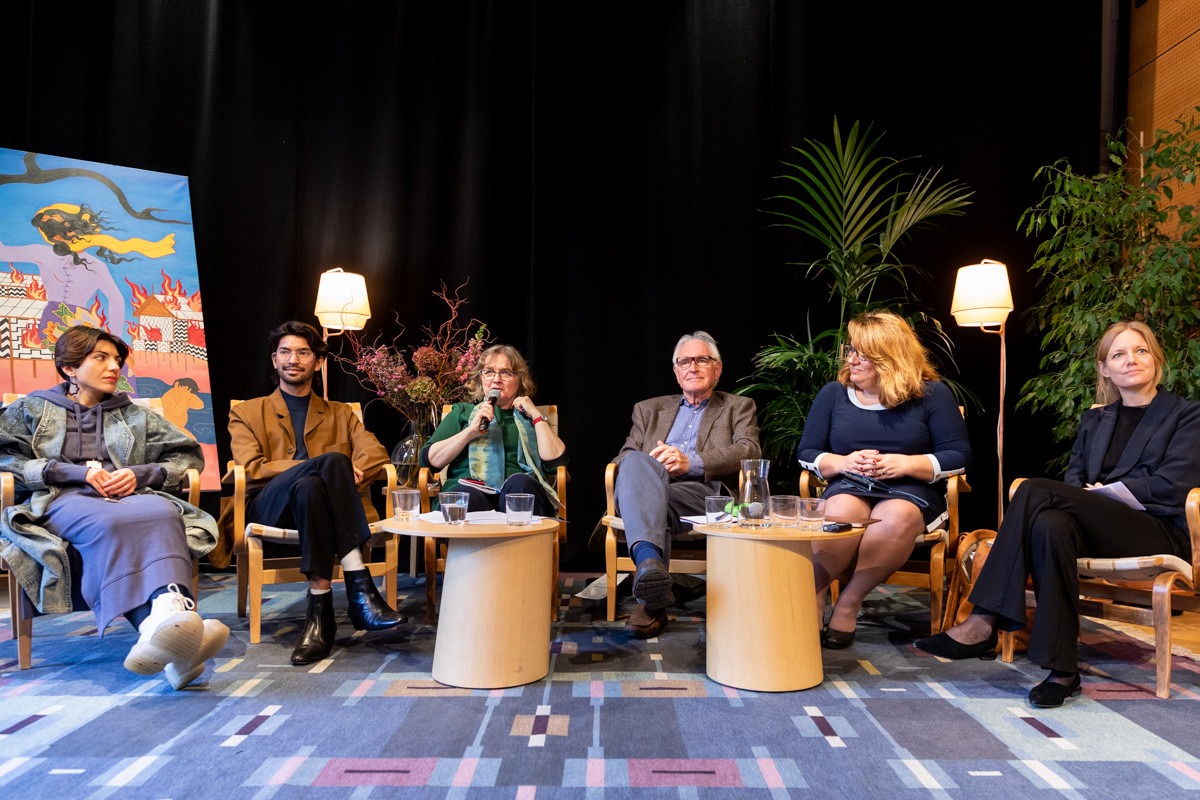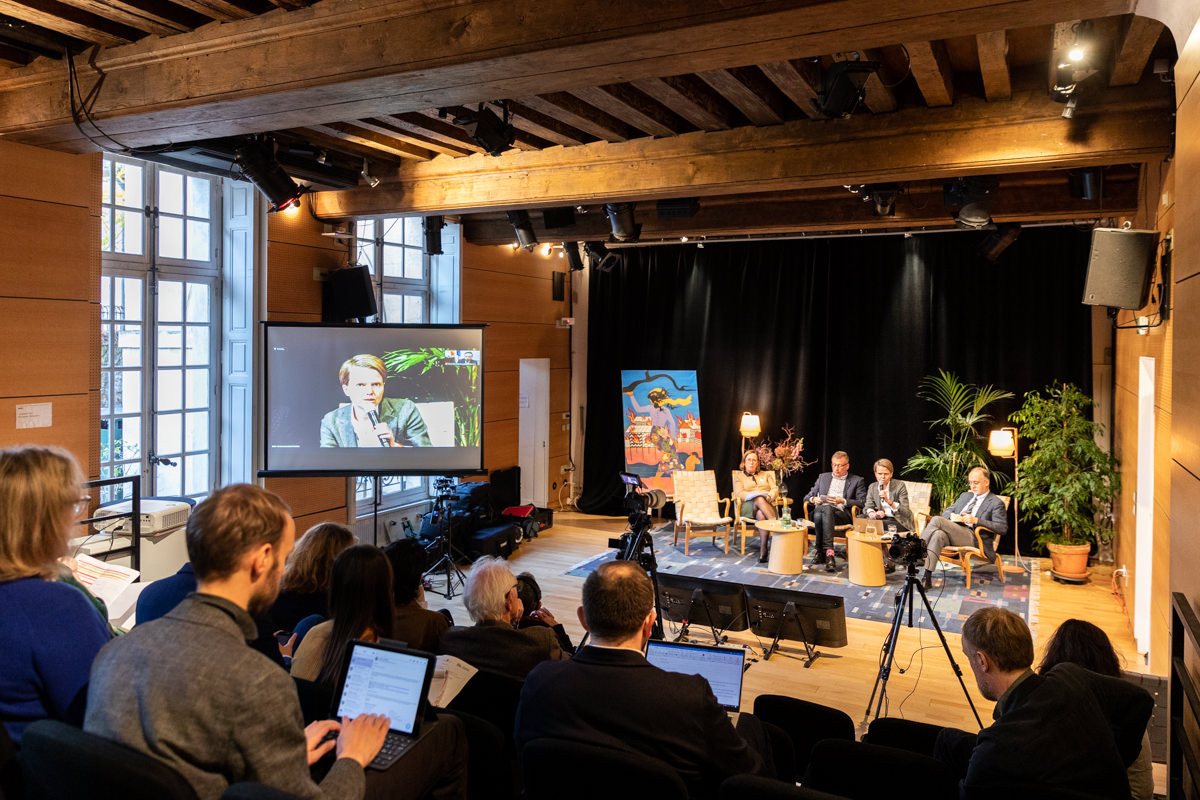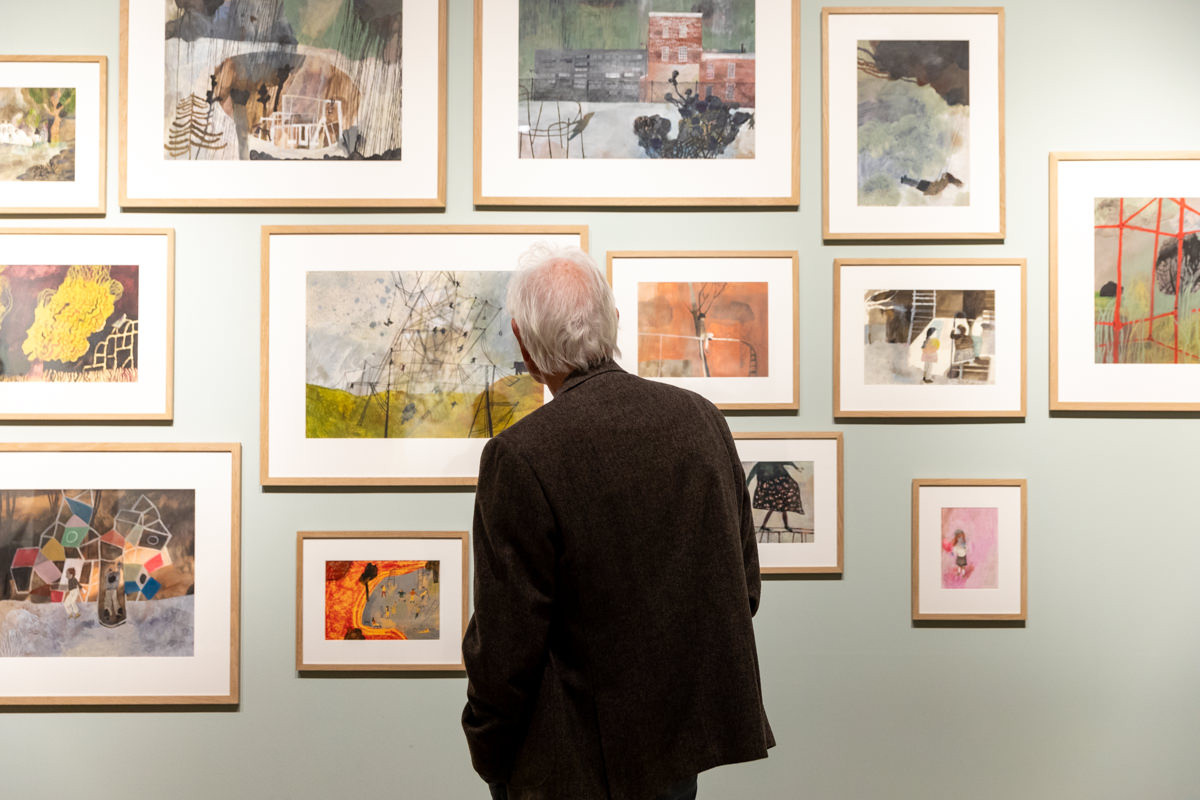



Artistic Freedom and its role in International Cultural Relations: EUNIC Knowledge Sharing Workshop
How deep is artistic freedom integrated in our foreign policy activities, in which international cultural relations play a significant role? These and other pertaining issues were discussed during a hybrid EUNIC Knowledge Sharing Workshop in November 2021. The workshop was co-hosted by EUNIC, the Swedish Institute and the Swedish Delegation to the OECD and UNESCO.




On 22 November 2021, colleagues from EUNIC members' headquarters, EUNIC clusters worldwide and relevant stakeholders working in the field of international cultural relations on the topic of artistic freedom and beyond joined the hybrid workshop both live at Institut suédois in Paris and online. In the knowledgeable hands of moderators Sara Whyatt (independent expert) and Mikael Schultz (Deputy Permanent Delegate Swedish Delegation to the OECD and UNESCO), the workshop explored different meanings of artistic freedom and its role in international cultural relations.
Over the next years we need to emphasize the role of culture as a tool for promoting human rights and recognize states as the main actors in providing the protection of those rights.
Alexandra Xanthaki, newly appointed UN Special Rapporteur for Cultural Rights about the future of protecting Artistic Freedom
The first part of this explorative journey was enriched by input from Alexandra Xanthaki (UN Special Raporteur for Cultural Rights), Ole Reitov (independent expert & co-founder of Freemuse), Karin Hansson (ICORN National Coordinator). The artists Justina (rapper, Iran) and Richie Nath (visual artist, Burma) contributed with their personal first-hand experience of working in a restrictive environment and from exile.
You can listen to the artists Justina and Richie sharing their hopes for the outcome of this workshop!
The second part of the workshop discussed the relation between artistic freedom and policy from the point of view of international organisations and EUNIC members. Contributions from Louise Haxthausen (Director UNESCO Brussels Liaison Office), Johannes Ebert (Secretary General Goethe-Institut & EUNIC vice-president), Madeleine Sjöstedt (Director-General Swedish Institute), Guzmán Palacios (AECID Director of Cultural and Scientific Relations & EUNIC president) and Diego Marani (Director Italian Cultural Institute Paris) shed light on this important topic from various points of view and national perspectives and allowed for a rich and interesting exchange among panelists and the audience.
Artistic Freedom touches on many sensitive issues. We try to keep it on a dialogue basis and need to address these issues in an interdisciplinary way.
Ole Reitov, independent expert & co-founder of Freemuse on the challenges to realizing Artistic Freedom
For colleagues present in Paris, the day was concluded with the celebration of the Swedish Institute’s 75th anniversary and the Institut suédois in Paris’ 50th anniversary, including a guided visit of the temporary exhibition at Institut suédois.
Following this rich workshop, on 23 November workshop participants joined a study visit at UNESCO headquarters with colleagues from the UNESCO culture sector to discuss UNESCO’s policy work and operational programmes related to artistic freedom including the 2005 Convention on the Protection and Promotion of the Diversity of Cultural Expressions. The meeting served to explore synergies between UNESCO and European stakeholders in addressing the most pressing issues in the field and to explore future possibilities of collaboration.
The workshop aimed to raise awareness amongst the EUNIC members of the range of issues impacting artistic freedom. It was the first step in discussing this important topic with the wider network and mapping EUNIC members’ interests and activities in the field. As a network we look forward to taking these topics further in the future.
